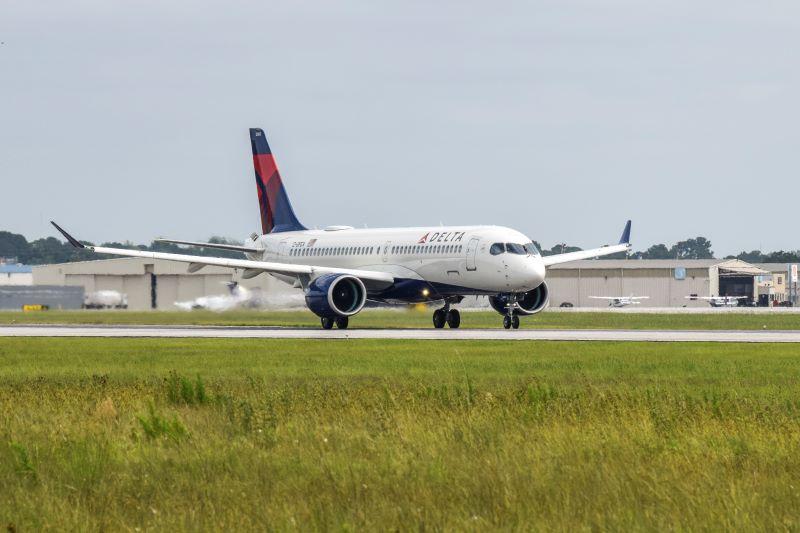
Delta Air Lines is anticipating the Pratt & Whitney PW1000G accelerated inspection program will have minimal impact on its Airbus A321neo fleet and expects to have more insight on potential A220 availability ramifications soon, CFO Dan Janki said.
Speaking during the airline’s 2023 third quarter earnings call Oct. 12, Janki suggested that a few of Delta’s oldest A321neos could face engine removals, but not until late 2024.
“We took our deliveries later, so the impact will be modest to minimal,” Janki said. ‘If there are any inspections ... it will be in the latter half of 2024 based on the analysis that we’ve gotten so far from Pratt.”
Pratt & Whitney has flagged more than 3,000 PW1000G-family engines that need to have certain high-pressure turbine disks and high-pressure compressor integrally bladed rotors inspected for cracks over the next three years. The disks in question were installed in engines made from mid-2015 to mid-2021 and subsequently delivered to Airbus for installation.
As many as one-third of affected PW1100Gs may need to be removed before scheduled shop visits, which will create a backlog in overhaul shops and leave hundreds of aircraft grounded at any given time as the work is done. The initial deadline for removing the 140 most vulnerable engines was in late September.
Delta operates 41 PW1100G-powered A321neos and has 133 more on order, the Aviation Week Network Fleet Discovery database shows. The oldest were delivered in early 2022.
Its A220 fleet will face more inspections. Delta began taking A220s in 2018 and has about 50 built through the end of 2021. But the global A220 fleet’s smaller size compared to the A320neo family means the effect of early inspections—which Pratt is still assessing—is not expected to be nearly as disruptive for operators as on the A320neo family.
“We’re still waiting on the full analysis related to the A220 fleet,” Janki said. “That should be coming later this month, and we will assess that impact appropriately.”





